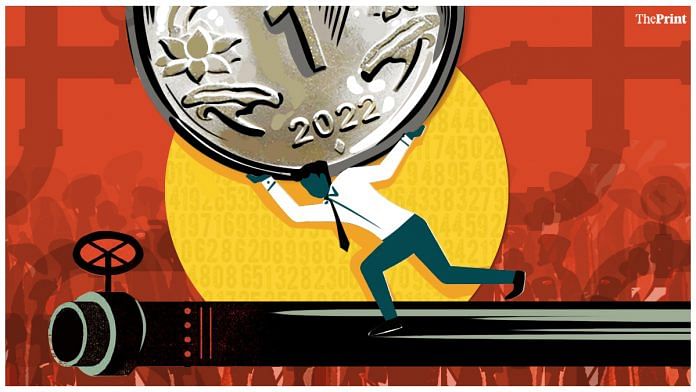War is never good news, nor are rising oil prices for an economy that imports about 85 per cent of its needs. With crude oil prices crossing $100 per barrel after more than seven years, an oil shock is on its way. A gas shock too, for close to half the natural gas that is consumed in the country is imported. Coal also comes into the reckoning, for (as with oil) India is its third-largest importer. Since petrol and diesel prices have not been raised since November, while crude oil prices have surged by 25 per cent in just the past two months, a retail price shock may be coming in mid-March, once the counting of votes in the state elections is over. Cooking gas prices, too, could go up.
The way to prevent that and irritated muttering at gas stations would be for the government to further roll back the tax increases that it imposed when oil prices were coming down from their peaks of 2014. This would mean some loss of revenue, but the Budget for next year has some cushions built in and the government could absorb the loss. Consumers had complained in the intervening years that the benefit of lower oil prices was not being passed on to them. They will understand the wisdom of that if retail prices are kept unchanged now and the fisc takes the hit instead. Building a cushion in the good years, for providing relief in harsher times, is generally good practice.
There will be wider consequences, though. Raw material costs will go up virtually across the board for industry, and fuel costs for electricity-generating companies. How much the former will be able to pass on to consumers depends on market dynamics, while the power distribution companies (mostly owned by state governments) have traditionally preferred to go the subsidy route. Indeed, free electricity has been among the campaign promises in the current round of elections. But since electricity is already subsidised by an average of about 25 per cent, some increase in power tariffs may prove unavoidable.
Also read: Let’s focus on getting women into education, work. Don’t make it conditional on what they wear
In these circumstances, there is only a slim chance of inflation in the next financial year staying at about the 3 per cent mark, as the Budget’s underlying macro-numbers assumed. So a Reserve Bank that has so far gone easy on interest rate policy in the belief that inflation would soon ease may have to revise that stance. A slight increase in rates may not amount to much in terms of macro-economic impact — at least not in the immediate future. But both borrowers (including governments) and lenders will get the signal and re-do their maths. All this makes for a somewhat more uncomfortable outlook than prevailed at Budget time a month ago. The important thing is that the economy is not in a “fragile” position. Compared to 2012-13, when that term was applied to India and some others, the situation today is more comfortable vis-a-vis the trade deficit as well as foreign exchange reserves.
What this situation does mean, though, is that consumers will take longer to come out of their shell, growth will moderate, and full recovery from the effects of the pandemic will be stretched out even longer. There is nothing much that anyone can do about this; the economy has suffered every time there has been an oil shock. But again, compared to the past, there is less reason to worry now. Inflation-adjusted oil today at $100 per barrel is not the same thing as oil at $100 and higher in 2013-14.
The question that remains is how long oil prices will stay high. Amid tough talk by President Joe Biden (narrowed eyes, gritted teeth, etc), the West’s sanctions on Russia have steered clear of the energy sector. Europe gets a quarter of its oil and a third of its gas from Russia, and governments on both sides of the Atlantic do not want to suffer the reverse kick of an energy shortage on account of sanctions. In the process, Russia gets to enjoy continued exports at higher energy prices, while importing countries like India have to brace themselves.
Also read: Blue-collar blues — not too late to boost manufacturing exports, but strong rupee makes it tough



